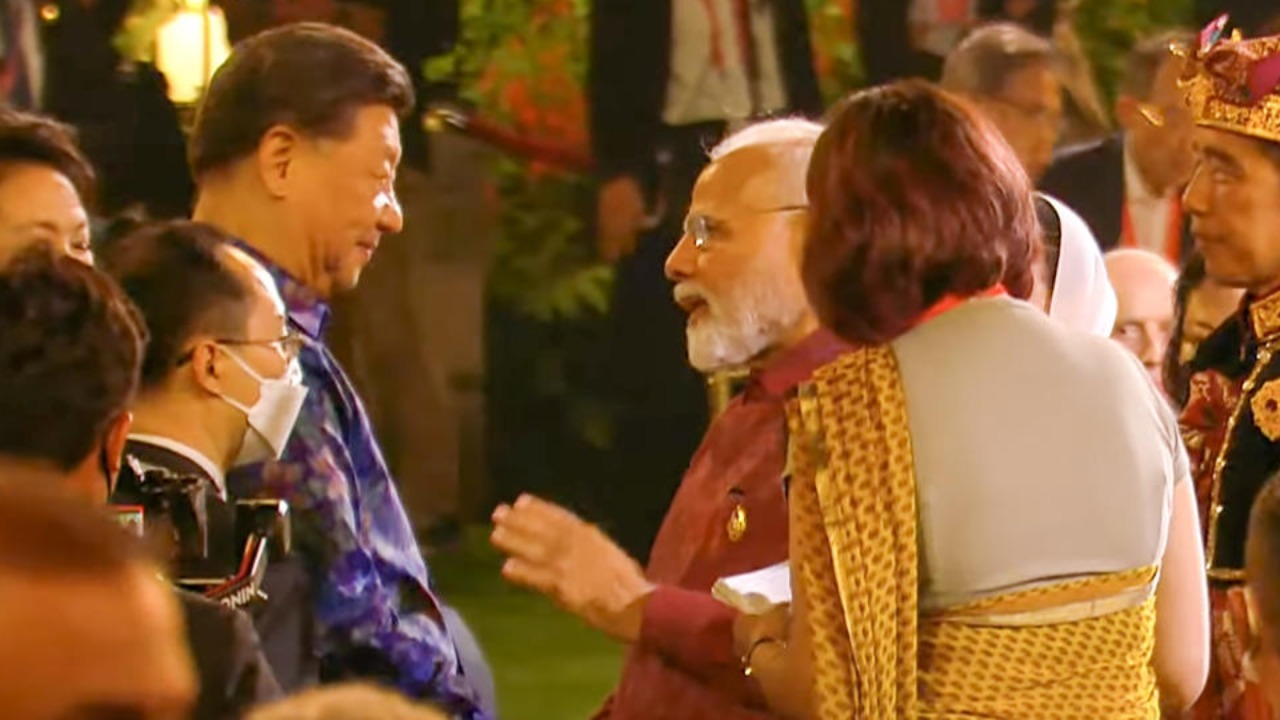
Leaders at the G-20 conference stressed that in a multi-polar world, China and India will have to play a crucial role in reviving the European economy, which has worsened following the outbreak of the Ukraine-Russia war
In 2021, the European Union had set up a €672.5 billion recovery fund in response to the Covid-19 pandemic, but the situation worsened following the outbreak of the Ukraine-Russia War. With the conflict, which broke out in February this year, entering the 10th month, the world scenario, both in terms of economy and political, is grim as well as challenging. The significance of the G-20 conference comprising world’s richest and most powerful countries held in Bali, Indonesia, held on November 15-16 this year increased manifold in this backdrop. The agenda of this summit was set in with the marathon meeting of more than three hours between the US president Joe Biden, with his Chinese counterpart, Xi Jinping, held just a day before at the same venue.
The two leaders representing America, world’s most powerful country, and China, now an economic superpower, committed themselves to compete and excel, but they agreed that there was no place for ‘cold war’ in the contemporary world. For India, now the chairman of the G-20, the summit entrusted a proactive role in the geo-politics. Earlier, in September this year, she was also assigned the presidentship of the Shanghai Cooperation Organization (SCO). During the Bali summit, the Indian Prime Minister, Narendra Modi, and Xi Jinping did not have any detailed discussion on the sidelines, but the leaders had a handshake accompanied by a warm smile.
There was a general consensus that the funds raised in 2021 were inadequate. The global economies, albeit to some extent the European economy, need the South Asian economies, especially Chinese and Indian, for restoring its health. German Chancellor, Olaf Scholz, recently stressed on deeper cooperation with the region. He had been to Beijing just two weeks before the G-20 Summit and repeatedly stated, “Deepening cooperation is crucial because we all feel that the geopolitical ground beneath our feet is shifting.” He was hopeful of finalization of the ongoing negotiations for free trade agreements (FTA) of the European Union (EU) with Australia, India and Indonesia. At present, Vietnam and Singapore are the only countries having a free trade agreement with the EU. Meanwhile, the crucial meeting between the British PM, Rishi Sunak, on the sidelines of the G-20 is expected to propel FTA between the two countries.
Xi Jinping, who appeared to be reinvigorated by a fresh five–year term in office, was seen having a series of meetings with world leaders. Similarly, Indian PM Narendra Modi, now having the responsibility of steering the SCO and G-20 too interacted with leaders of Britain, France and Germany. There were no formal talks between Modi and Xi, but they did exchange warm handshakes, thus opening the possibility of a renewed intense cooperation between the two Asian giants. However, much would depend upon the withdrawal of the Chinese forces to the 2020 pre-Galwan position in Eastern Ladakh. It is also believed that the backroom diplomacy of the two leaders, perhaps, has ensured that Russia is not condemned for invading Ukraine. Besides, it was felt that the security concerns of Russia need to be taken care of.
Biden-Xi Jinping Talks
With the Chinese assurance that it would not occupy Taiwan by force and America assuring that it would be adhering to ‘one-China policy’, the Joe Biden-Xi Jinping summit at Bali could be called ‘historic’. It had enabled the agenda of cooperation and competition in the geo-politics that was further endorsed at the G-20 meeting. The two world leaders have also reasserted that there could be no repeat of the ‘cold war’. The talks have definitely impacted the G-20 declaration for better cooperation among the nations across the continents. It focused on a human-centred policy, which is inclusive, fair; sustainable that leads to greater social justice, decent work, and social protection for all. It also includes supporting all vulnerable countries, fully including migrants in recovery efforts working to integrate persons with disabilities, women, and youth. Three G-20 leaders who did not attend the meeting were Brazil’s President Jair Bolsanaro, Mexico’s President Andres Manuel Lopez Obrador; and Russia’s President Vladimir Putin.
For India, perhaps, destiny had already been assigned to be a harbinger of peace. Just two months before the G-20 summit held on November 15-16, Modi tells Russian president Vladimir Putin that “war has no place in today’s world”. They had met on the sidelines of the SCO at Samarkand, Uzbekistan in September this year.
It is stated that it was due to Indian efforts that at G-20, the world leaders avoided direct condemnation of Russia, thus providing a ‘window for peace’ to the Kremlin. Biden too did not blame Russia for the conflict, but endorsed the G-20 document that peace must immediately be restored in Ukraine.
It may also be noted that before attending G-20, Biden flew to Cambodia, and reassured American allies in the Indo-Pacific that his administration would not leave allies in lurch. His address to the Association of Southeast Asian Nations (ASEAN) is considered a deliberate effort for building confidence among the countries of the region scared of the growing economic and military might of China.
During his meeting with Xi Jinping, he might have spelt out the concern of the countries of the region; and America’s commitment to promote free economy and democracy, though competing with China in trade, business and technology.
India as a Midwife
India chairs two crucial institutions, SCO and G-20, when for the first time during the past 35 years, the geo-politics is moving from a uni-polar regime to a multi-polar era. She being in a crucial role leading the two key global institutions has to be in a driving seat steering the world to go through the ordeal of ending the American position as the only Superpower.
The recent American climb down is much more pronounced, especially when only a few weeks ago, two documents regarding American strategy explaining its key security factors were released in Washington. The documents had referred to China’s growing economic, technological and military power and its expansionist designs across the continents. Biden’s conciliatory approach could also be attributed to the recently held mid-term polls of the American Congress. In spite of the failure of the Republican Party to gain any spectacular victory in the House of Representatives, and Democratic Party getting a razor-thin majority in the Senate, it might not be possible for the Biden administration to continue funding the war. The war has already hit the world economy, supply chains and even food security. The European continent comprising the world’s most prosperous countries, perhaps, is facing its biggest survival challenge since World War-II years. The economic challenges accompanied by the European war has forced the US-led western powers to accommodate China as a superpower immediately, and perhaps, later India too, when the world moves towards a multi-polar world, thus ending the 35-year old hegemony of the US as the only Superpower on the earth. The status it had been enjoying since the collapse of the USSR in the nineties.
(A New Delhi-based independent columnist offers an in-depth study. The views expressed are his own.)












